To lose everything and to dream again
https://vimeo.com/140815700 Copyright 2015 © CSC Audiovisivi – All rights reserved
https://vimeo.com/140815700 Copyright 2015 © CSC Audiovisivi – All rights reserved
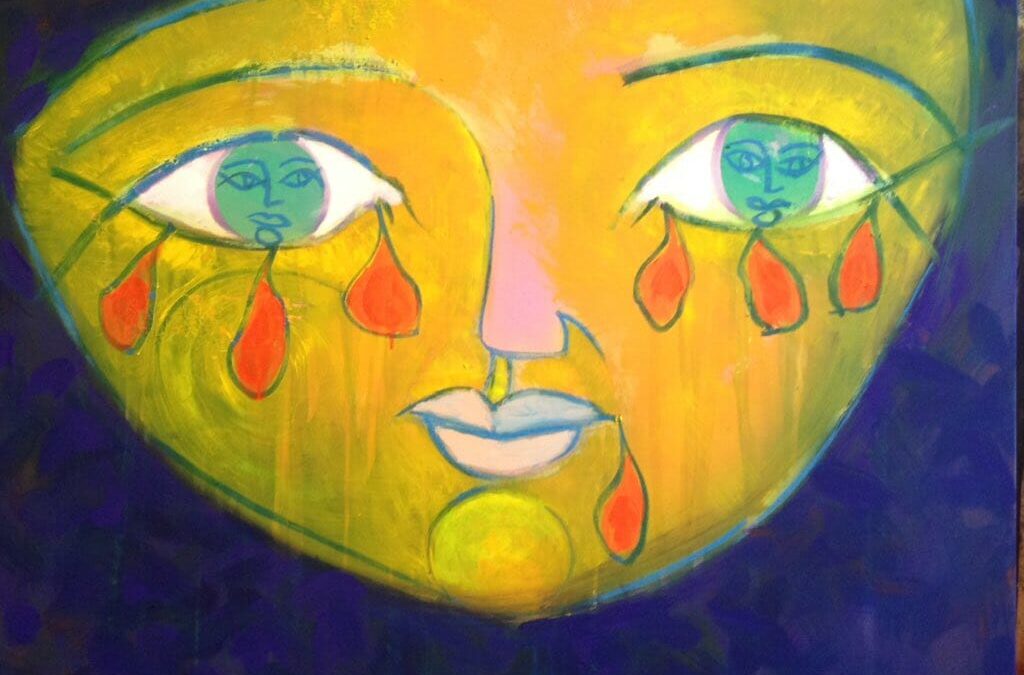
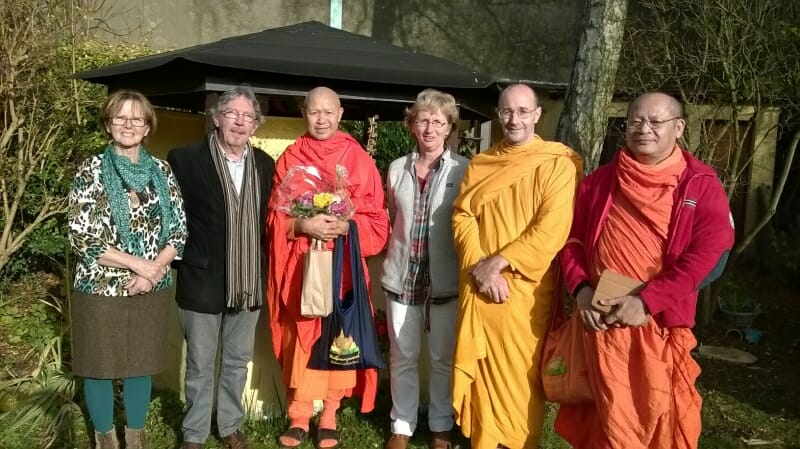 In the face of the dramatic events that took place in Paris and in many other parts of the world, “the Focolare Movement, while it weeps with those who weep, continues to believe in the path of dialogue, of acceptance and of respect for the other, whoever that may be and from whatever provenance, religious belief, and ethnicity,” Focolare president Maria Voce stated on the day after the attacks in the French capital. The Focolare, together with those with different responsibilities who work for peace even at personal risk, renews its commitment to intensify and multiply acts and gestures of reconciliation, spaces for dialogue and communion, opportunities for encounter and sharing at all levels and in all parts of the world to embrace the cry of humanity and transform it into new hope.”
In the face of the dramatic events that took place in Paris and in many other parts of the world, “the Focolare Movement, while it weeps with those who weep, continues to believe in the path of dialogue, of acceptance and of respect for the other, whoever that may be and from whatever provenance, religious belief, and ethnicity,” Focolare president Maria Voce stated on the day after the attacks in the French capital. The Focolare, together with those with different responsibilities who work for peace even at personal risk, renews its commitment to intensify and multiply acts and gestures of reconciliation, spaces for dialogue and communion, opportunities for encounter and sharing at all levels and in all parts of the world to embrace the cry of humanity and transform it into new hope.” 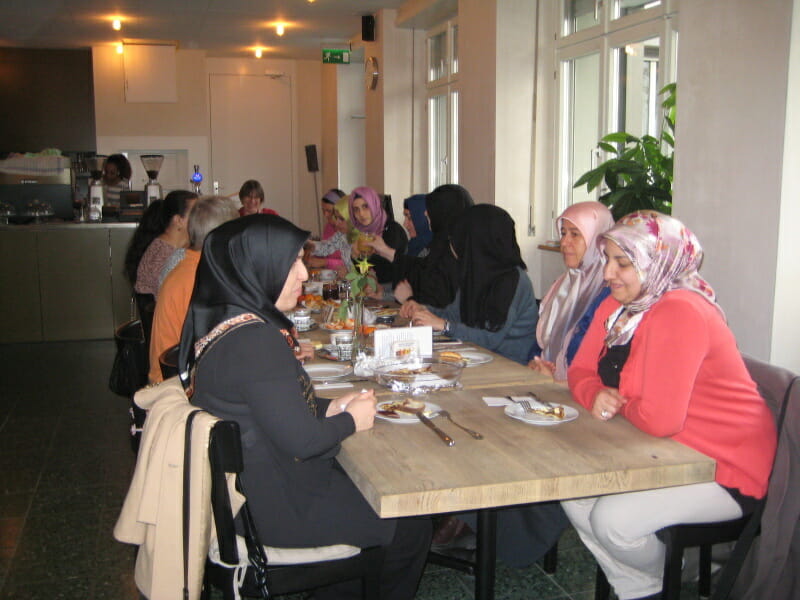 A variety of personal and collective initiatives are currently underway. In France, there was the woman from Paris who paid a visit to a Moroccan store owner and to an Algerian pharmacist to renew their friendship; the couple from Vendée who support local associations that welcome immigrants, involved in the Islamic-Christian Friends Group (GAIC) in Mulhouse; in Alsace, which has intensified its involvement in the Interreligious Week that is taking place in November; a parish priest from the Paris suburb, who wrote a common declaration of peace with Muslims from his quarter; the active participation in the interreligious festival Vivre ensemble à Cannes that was awarded the Chiara Lubich Fraternity Prize; the shared organizing of the 2cnd edition of “Muslims and Christians together with Mary” planned for April 2, 2016 at the Basilica of Longpont, Essone. In Italy, everyone is being invited to get out and meet the Muslim world that lives on Italian soil, striving to build bridges, to create relationships, to work together in concrete projects for peace. In some cities these relationships have been in place for quite a while and have already borne the fruits of brotherhood.
A variety of personal and collective initiatives are currently underway. In France, there was the woman from Paris who paid a visit to a Moroccan store owner and to an Algerian pharmacist to renew their friendship; the couple from Vendée who support local associations that welcome immigrants, involved in the Islamic-Christian Friends Group (GAIC) in Mulhouse; in Alsace, which has intensified its involvement in the Interreligious Week that is taking place in November; a parish priest from the Paris suburb, who wrote a common declaration of peace with Muslims from his quarter; the active participation in the interreligious festival Vivre ensemble à Cannes that was awarded the Chiara Lubich Fraternity Prize; the shared organizing of the 2cnd edition of “Muslims and Christians together with Mary” planned for April 2, 2016 at the Basilica of Longpont, Essone. In Italy, everyone is being invited to get out and meet the Muslim world that lives on Italian soil, striving to build bridges, to create relationships, to work together in concrete projects for peace. In some cities these relationships have been in place for quite a while and have already borne the fruits of brotherhood. 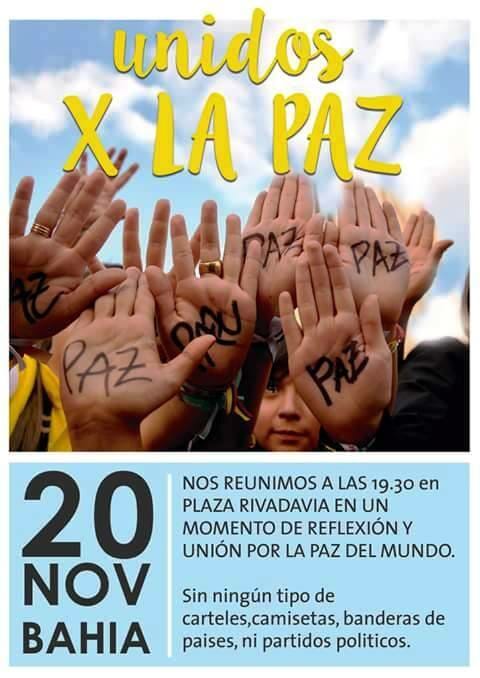 In Great Britain a prayer chain was begun for the victims of the tragedy, asking God to make them “instruments for bringing unity into their local environments.” In Ireland an evening event was held to acquaint people with the Syrian culture in view of welcoming the refugees. In Switzerland Muslim and Christian women meet every two months to share their faith. In Lugano there was an intense sharing with Imam Samir Jelassi. In Meiningen, Austria, a few days before the attack, 150 people gathered with Cenap Aydin, Director of the Tevere Institute in Rome, Italy, and Dr. Siebenrock from the University of Innsbruck, from a study group of Muslim theologians from Iran, Tunisia, Algeria and Turkey, and with Catholic theologians. In Augsburg, Germany, there was the “7 On the Dot – Augsburg Prays For Peace,” every evening at seven o’clock in one of the largest churches in the city – once in the Catholic church, once in the Lutheran church. One refugee, one expert or representative from an NGO would describe the situation of a country under siege. There was also a peace march in Loppiano, Italy and a public rally in Bahia Blanca Square in Argentina without national flags or party banners. In California a benefit dinner was held to gather funds in support of refugees, preceded by a moment of prayer for the victims of the terrorist attacks in Paris and Beirut, and a presentation of the United World Project. On November 14th in Honduras there was a peace march organized by the Focolare Movement in solidarity with Syria which gathered people from several youth movements with a message of unity and dialogue. Luigi Butori writes from Asia: “I think of the dead from the daily attacks in southern Thailand, of the Rohingya refugees. I think of the Muslim friends at the mosque in Chiang Mai. I think of Mae Sot where refugees continue to arrive from Myanmar in search of a better life.”
In Great Britain a prayer chain was begun for the victims of the tragedy, asking God to make them “instruments for bringing unity into their local environments.” In Ireland an evening event was held to acquaint people with the Syrian culture in view of welcoming the refugees. In Switzerland Muslim and Christian women meet every two months to share their faith. In Lugano there was an intense sharing with Imam Samir Jelassi. In Meiningen, Austria, a few days before the attack, 150 people gathered with Cenap Aydin, Director of the Tevere Institute in Rome, Italy, and Dr. Siebenrock from the University of Innsbruck, from a study group of Muslim theologians from Iran, Tunisia, Algeria and Turkey, and with Catholic theologians. In Augsburg, Germany, there was the “7 On the Dot – Augsburg Prays For Peace,” every evening at seven o’clock in one of the largest churches in the city – once in the Catholic church, once in the Lutheran church. One refugee, one expert or representative from an NGO would describe the situation of a country under siege. There was also a peace march in Loppiano, Italy and a public rally in Bahia Blanca Square in Argentina without national flags or party banners. In California a benefit dinner was held to gather funds in support of refugees, preceded by a moment of prayer for the victims of the terrorist attacks in Paris and Beirut, and a presentation of the United World Project. On November 14th in Honduras there was a peace march organized by the Focolare Movement in solidarity with Syria which gathered people from several youth movements with a message of unity and dialogue. Luigi Butori writes from Asia: “I think of the dead from the daily attacks in southern Thailand, of the Rohingya refugees. I think of the Muslim friends at the mosque in Chiang Mai. I think of Mae Sot where refugees continue to arrive from Myanmar in search of a better life.”
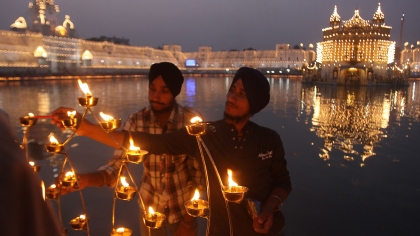
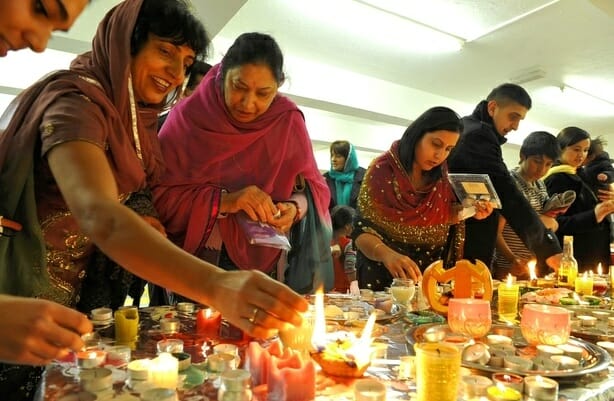 During the Ashwayuja month, which usually falls between October and November, India is clothed in celebration and light. It’s Diwali, a tradition that goes back to the ancient legend of King Rama who after 14 years of exile in the forest, returned to the city of Ayodhya where he was welcomed by a parade (avali) of lights (dipa) in his honour. Hence the name: Dipawali or Diwali.This year it was celebrated during 10-15 November. The festivities begin with a good house cleaning while many small lamps are positioned in several points of the dwelling – entrances, window sills, lounges – and in the darkness of the night the whole city is transformed into a dreamlike fairyland scene. The light symbolises knowledge and inner awareness. But like a kaleidoscope, the meanings intersect and are magnified: knowledge conquers ignorance; interiority brings peace. Good conquers evil; light triumphs over shadows of darkness, and it unleashes the life force. People look forward to the feast all year. On the third day – the actual Diwali – people put on new clothes, adorn themselves with wreathes of flowers and glittering jewelry. They exchange gifts with relatives and friends, especially sweets and homemade snacks. Everyone attends the religious services in honour of Laskshmi, the goddess of wellbeing. In an atmosphere of peace, they carry leaves, coins and religious images, chanting Vedic mantras to receive her blessing. Then there are the games: cards, especially rummy, mimes, dances, treasure hunts and fireworks.
During the Ashwayuja month, which usually falls between October and November, India is clothed in celebration and light. It’s Diwali, a tradition that goes back to the ancient legend of King Rama who after 14 years of exile in the forest, returned to the city of Ayodhya where he was welcomed by a parade (avali) of lights (dipa) in his honour. Hence the name: Dipawali or Diwali.This year it was celebrated during 10-15 November. The festivities begin with a good house cleaning while many small lamps are positioned in several points of the dwelling – entrances, window sills, lounges – and in the darkness of the night the whole city is transformed into a dreamlike fairyland scene. The light symbolises knowledge and inner awareness. But like a kaleidoscope, the meanings intersect and are magnified: knowledge conquers ignorance; interiority brings peace. Good conquers evil; light triumphs over shadows of darkness, and it unleashes the life force. People look forward to the feast all year. On the third day – the actual Diwali – people put on new clothes, adorn themselves with wreathes of flowers and glittering jewelry. They exchange gifts with relatives and friends, especially sweets and homemade snacks. Everyone attends the religious services in honour of Laskshmi, the goddess of wellbeing. In an atmosphere of peace, they carry leaves, coins and religious images, chanting Vedic mantras to receive her blessing. Then there are the games: cards, especially rummy, mimes, dances, treasure hunts and fireworks.  Diwali is not only a Hindu feast. It is a cultural and social event that involves the whole country, with some variations depending on the region and its dominant religion. It is celebrated by Muslims, Buddhists and Christians. For five days the Focolare houses in Mumbai, New Delhi, Bangalore, Goa and the 13 educational centres that are connected to them, are covered in light. The centres serve 1,500 children and teenagers, most of them Hindu who, thanks to financial support from a distance are provided with an education, a daily hot meal and health care (www.afnonlus.org). The Diwali rituals reveal the great sensitivity of the Indian people the way it values the family, friendship, harmony of life and respect for the natural environment. It is significant that for Diwali, you buy impersonal objects, but you give gifts that have been made by your own hands. It is also significant that along with prayers, fruits of the earth are offered as an expression of gratitude towards Nature and its gifts. This custom is echoed in Pope Francis’s Encyclical Laudato si’. It was precisely that document and the inseparable link between living in harmony with creation and with others, that inspired the Pontifical Council for Interreligious Dialogue to send the Deepavali Message from Pope Francis to the nearly billion followers of the Sanatan Dhama (what Westerners call Hinduism). Pope Francis’s Message shares the wish that: “we Hindus and Christians, together with people of all religious traditions and good will, always foster a culture which promotes human ecology.” The Message also expresses a wish that “together, we consciously give ourselves to protecting nature, defending the poor, and building networks of respect and fraternity” (Laudato Si, 201). This will anticipate “the growth of the tree of peace” for those who wish to prepare themselves well for the feast of Christmas.
Diwali is not only a Hindu feast. It is a cultural and social event that involves the whole country, with some variations depending on the region and its dominant religion. It is celebrated by Muslims, Buddhists and Christians. For five days the Focolare houses in Mumbai, New Delhi, Bangalore, Goa and the 13 educational centres that are connected to them, are covered in light. The centres serve 1,500 children and teenagers, most of them Hindu who, thanks to financial support from a distance are provided with an education, a daily hot meal and health care (www.afnonlus.org). The Diwali rituals reveal the great sensitivity of the Indian people the way it values the family, friendship, harmony of life and respect for the natural environment. It is significant that for Diwali, you buy impersonal objects, but you give gifts that have been made by your own hands. It is also significant that along with prayers, fruits of the earth are offered as an expression of gratitude towards Nature and its gifts. This custom is echoed in Pope Francis’s Encyclical Laudato si’. It was precisely that document and the inseparable link between living in harmony with creation and with others, that inspired the Pontifical Council for Interreligious Dialogue to send the Deepavali Message from Pope Francis to the nearly billion followers of the Sanatan Dhama (what Westerners call Hinduism). Pope Francis’s Message shares the wish that: “we Hindus and Christians, together with people of all religious traditions and good will, always foster a culture which promotes human ecology.” The Message also expresses a wish that “together, we consciously give ourselves to protecting nature, defending the poor, and building networks of respect and fraternity” (Laudato Si, 201). This will anticipate “the growth of the tree of peace” for those who wish to prepare themselves well for the feast of Christmas.
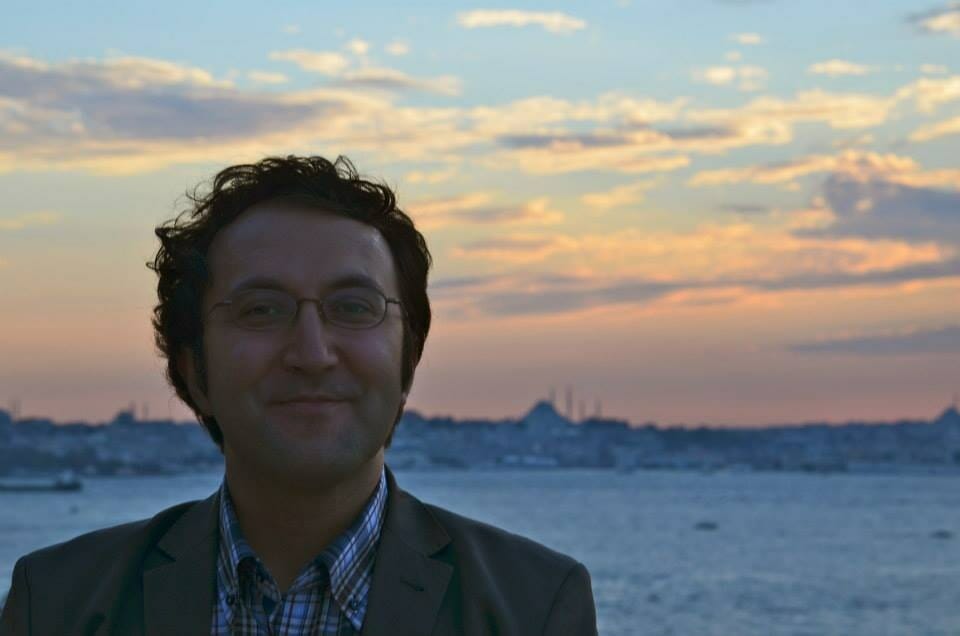
 “The tragic news of the horrendous terrorist attacks in the French capital has filled us with profound sorrow. Our thoughts, solidarity and prayers go to the victims, the wounded and their families, to their loved ones and to the French people.” With these words of condolence, Mustafa Cenap Aydin, director of the Tevere Centre for Dialogue in Rome expressed his dismay over recent terrorist attacks in France. He went on: “I unite myself to the message of the learned Muslim scholar, writer and educational activist M. Fethullah Gülen: ‘Every terrorist act from whomever it comes, is a heavy blow to the peace and tranquility of all humanity. These vile acts of terrorism are attacks not only against the French people, but also against the universal values of human brotherhood’.” “We will never grow tired of condemning all those who feed violence, hatred and fear by reproachfully abusing a religion, an ideology, for cruel and inhuman goals.” Gülen, who inspires millions with his message of love and compassion, invites everyone to join him in prayer that God would lead “all of humanity to a world of peace and tranquility” and “to act in solidarity against every form of terrorism; to become involved in the realisation of universal peace”. “We shall respond to these ‘inhuman‘ acts,” Mustafa Cenap Aydin concluded, “by reinforcing even more the spirit of unity and brotherhood. These attacks cannot but convince us even more of the importance of dialogue, conciliation and brotherhood; and to increase our commitment to spreading it. We are obviously convinced that peace will prevail. Let us call upon and appeal to one and all, to unite with us in this effort.” Source: Città Nuova in Italian
“The tragic news of the horrendous terrorist attacks in the French capital has filled us with profound sorrow. Our thoughts, solidarity and prayers go to the victims, the wounded and their families, to their loved ones and to the French people.” With these words of condolence, Mustafa Cenap Aydin, director of the Tevere Centre for Dialogue in Rome expressed his dismay over recent terrorist attacks in France. He went on: “I unite myself to the message of the learned Muslim scholar, writer and educational activist M. Fethullah Gülen: ‘Every terrorist act from whomever it comes, is a heavy blow to the peace and tranquility of all humanity. These vile acts of terrorism are attacks not only against the French people, but also against the universal values of human brotherhood’.” “We will never grow tired of condemning all those who feed violence, hatred and fear by reproachfully abusing a religion, an ideology, for cruel and inhuman goals.” Gülen, who inspires millions with his message of love and compassion, invites everyone to join him in prayer that God would lead “all of humanity to a world of peace and tranquility” and “to act in solidarity against every form of terrorism; to become involved in the realisation of universal peace”. “We shall respond to these ‘inhuman‘ acts,” Mustafa Cenap Aydin concluded, “by reinforcing even more the spirit of unity and brotherhood. These attacks cannot but convince us even more of the importance of dialogue, conciliation and brotherhood; and to increase our commitment to spreading it. We are obviously convinced that peace will prevail. Let us call upon and appeal to one and all, to unite with us in this effort.” Source: Città Nuova in Italian
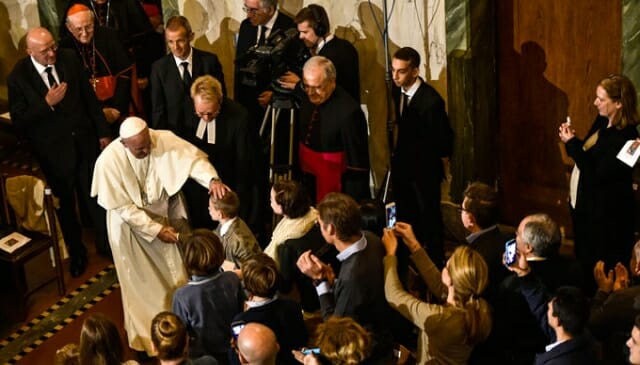
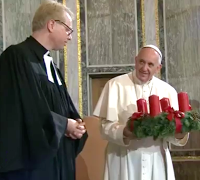 Home of Lutherans in Rome, the Christ Church welcomed Pope Francis on Sunday, November 15. Before Francis, John Paul II was the first Pontiff to enter a Lutheran Church and, in 2010, Benedict XVI was the second. “Our 500-member community is relatively small, all of us on the front lines in the field of ecumenism. We are active as a parish at various levels in the cit, but also in our own family, with colleagues at work, with neighbours or, like me someone who has lived in a Focolare community for more than thirty years,” says Heike Vesper. She was there on Sunday along with Catholic women focolarini who often accompany her to the Sunday liturgy. Heike called the Bishop of Rome an “evangelical Pope”, a pastor who focused his remarks that day on our common witness to Jesus Christ, “both in Lutheran expressions and in Roman Catholic expressions” on the importance of life and not so much interpretation. He spoke from his heart as he confided to us what he likes: to visit the sick and the incarcerated. The meeting and the prayer service with the Pope was new in its kind, you could say that it was a lesson on what should be of importance among Christians of different Churches: dialogue and deep listening, mutual trust, sincere and truthful answers, common prayer and listening to the Gospel.” Jens-Martin Kruse, Pastor of the Evanglical Lutheran Church, gave a warm welcome while remembering the victims of the Paris attacks: “Let us trust that Jesus has conquered the world and therefore not allow ourselves to be conditioned by fear.” “My brother Pastor mentioned the tragic events in Paris,” the Pope remarked. “Even God’s name is being used to close hearts.”
Home of Lutherans in Rome, the Christ Church welcomed Pope Francis on Sunday, November 15. Before Francis, John Paul II was the first Pontiff to enter a Lutheran Church and, in 2010, Benedict XVI was the second. “Our 500-member community is relatively small, all of us on the front lines in the field of ecumenism. We are active as a parish at various levels in the cit, but also in our own family, with colleagues at work, with neighbours or, like me someone who has lived in a Focolare community for more than thirty years,” says Heike Vesper. She was there on Sunday along with Catholic women focolarini who often accompany her to the Sunday liturgy. Heike called the Bishop of Rome an “evangelical Pope”, a pastor who focused his remarks that day on our common witness to Jesus Christ, “both in Lutheran expressions and in Roman Catholic expressions” on the importance of life and not so much interpretation. He spoke from his heart as he confided to us what he likes: to visit the sick and the incarcerated. The meeting and the prayer service with the Pope was new in its kind, you could say that it was a lesson on what should be of importance among Christians of different Churches: dialogue and deep listening, mutual trust, sincere and truthful answers, common prayer and listening to the Gospel.” Jens-Martin Kruse, Pastor of the Evanglical Lutheran Church, gave a warm welcome while remembering the victims of the Paris attacks: “Let us trust that Jesus has conquered the world and therefore not allow ourselves to be conditioned by fear.” “My brother Pastor mentioned the tragic events in Paris,” the Pope remarked. “Even God’s name is being used to close hearts.”  “Pope Francis’s freedom and sincerity was very touching,” writes Heike. “He gave his answers from the perspective of a fellow pilgrim on the same road as the listeners. He stressed the importance of following one’s conscience, of living for the neighbour; and that with faith, that is with love, all the walls will crumble.” The fraternal tone of the dialogue created a family atmosphere that was “more and more deep and encouraging.” Three questions were posed to Pope Francis: What does it mean to be Pope? What is the duty of Christians towards the needy? What must be done so that we can celebrate the Eucharist together, the Lord’s Supper, when husband and wife belong to different Churches? “Those who find themselves in this situation,” Heike explained, “suffer from the division even more. It was not easy for the Pope to answer, in fact, in spite of the steps that have already been taken, theological questions remain open concerning the Magisterium, the vision of the Church, that are still an impediment to a common celebration. The Pope mentions a few possible paths for sharing the Lord’s Supper. He referred to the Gospel, to Saint Paul: “There is one Lord, one faith, one baptism” (Eph 4:5). He invited everyone to listen to his or her own conscience, to give more importance to life, to the common journey – more than to the different interpretations. His words instilled hope and peace. Even the gift he brought had a prophetic dimension: a chalice and paten for the celebration of the Eucharist.” The Gospel of the day was the Final Judgement (Mt 23) that reminds us that we will be judged on our love for the poor and needy. The Pope brought to the attention of those who say “our books say one thing and yours say another,” the words of a Lutheran idea: “There’s the hour of reconciled diversity.” And he concluded saying: “Today we ask the grace of this diversity reconciled in the Lord, the reconciliation of that God who came amongst us to serve and not to be served.”
“Pope Francis’s freedom and sincerity was very touching,” writes Heike. “He gave his answers from the perspective of a fellow pilgrim on the same road as the listeners. He stressed the importance of following one’s conscience, of living for the neighbour; and that with faith, that is with love, all the walls will crumble.” The fraternal tone of the dialogue created a family atmosphere that was “more and more deep and encouraging.” Three questions were posed to Pope Francis: What does it mean to be Pope? What is the duty of Christians towards the needy? What must be done so that we can celebrate the Eucharist together, the Lord’s Supper, when husband and wife belong to different Churches? “Those who find themselves in this situation,” Heike explained, “suffer from the division even more. It was not easy for the Pope to answer, in fact, in spite of the steps that have already been taken, theological questions remain open concerning the Magisterium, the vision of the Church, that are still an impediment to a common celebration. The Pope mentions a few possible paths for sharing the Lord’s Supper. He referred to the Gospel, to Saint Paul: “There is one Lord, one faith, one baptism” (Eph 4:5). He invited everyone to listen to his or her own conscience, to give more importance to life, to the common journey – more than to the different interpretations. His words instilled hope and peace. Even the gift he brought had a prophetic dimension: a chalice and paten for the celebration of the Eucharist.” The Gospel of the day was the Final Judgement (Mt 23) that reminds us that we will be judged on our love for the poor and needy. The Pope brought to the attention of those who say “our books say one thing and yours say another,” the words of a Lutheran idea: “There’s the hour of reconciled diversity.” And he concluded saying: “Today we ask the grace of this diversity reconciled in the Lord, the reconciliation of that God who came amongst us to serve and not to be served.”
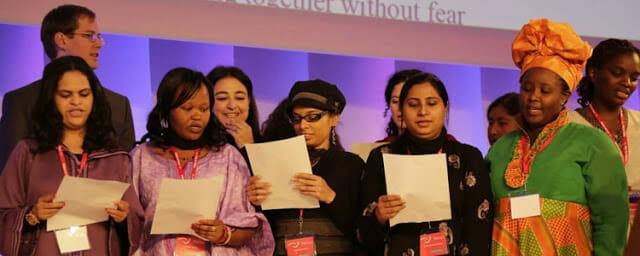
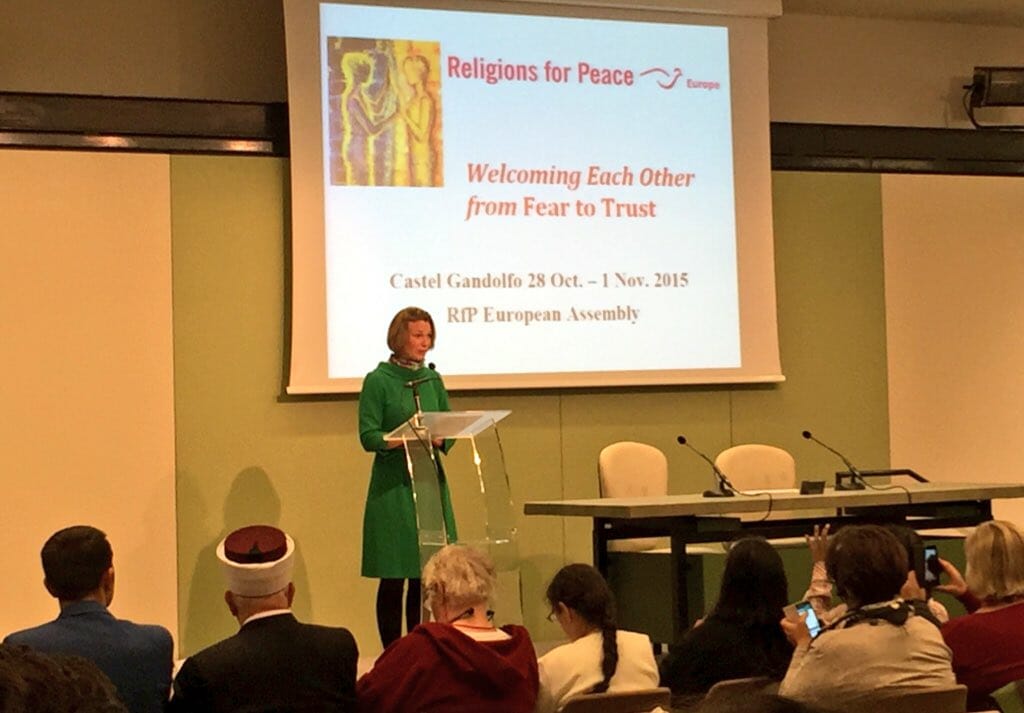
The Assembly was held on 28-31 October 2015 at the Mariapolis Centre in Castel Gandolfo (Rome, Italy).
 “From fear to trust” read the title of the convention which was attended by about fifty young people and 150 adults, among whom some leading figures of the different religious traditions. The moments for sharing the so-called good practices by protagonists from different European countries were particularly effective. The work done in plenary sessions and workshops sought to respond to the challenges that the European continent faces today, both in view of the throngs of migrants, and the growth of personal and group sentiments of racist nature. Particular attention was given to the role of the media and to its negative manipulation of public opinion, increasing fears, to the detriment of the positive elements which already exist and which do not make the news. From the presentation of the young people, a multiethnic, multicultural and multi-religious cross-section of Europe emerged which is not just a futuristic projection but already a reality. The youths also expressed their commitment to work towards building constructive relationships between people of different traditions. From these four days of work, an updated role has emerged for Religions for Peace in Europe, in which the organization, now active for several decades, is called to coordinate and to work in collaboration and by networking with other agencies actively involved in the fields of interreligious and intercultural dialogue, and in the fields of welcoming and integration. A commitment which not only conveys “our fraternal support to the families and friends of the innocent victims and the entire French people, through affectionate remembrance and prayer” which is renewed in the desire to “proceed with our joint actions for justice and peace.” See also: Protagonists in building a world of peace – opening speech of Maria Voce, President of the Focolare
“From fear to trust” read the title of the convention which was attended by about fifty young people and 150 adults, among whom some leading figures of the different religious traditions. The moments for sharing the so-called good practices by protagonists from different European countries were particularly effective. The work done in plenary sessions and workshops sought to respond to the challenges that the European continent faces today, both in view of the throngs of migrants, and the growth of personal and group sentiments of racist nature. Particular attention was given to the role of the media and to its negative manipulation of public opinion, increasing fears, to the detriment of the positive elements which already exist and which do not make the news. From the presentation of the young people, a multiethnic, multicultural and multi-religious cross-section of Europe emerged which is not just a futuristic projection but already a reality. The youths also expressed their commitment to work towards building constructive relationships between people of different traditions. From these four days of work, an updated role has emerged for Religions for Peace in Europe, in which the organization, now active for several decades, is called to coordinate and to work in collaboration and by networking with other agencies actively involved in the fields of interreligious and intercultural dialogue, and in the fields of welcoming and integration. A commitment which not only conveys “our fraternal support to the families and friends of the innocent victims and the entire French people, through affectionate remembrance and prayer” which is renewed in the desire to “proceed with our joint actions for justice and peace.” See also: Protagonists in building a world of peace – opening speech of Maria Voce, President of the Focolare
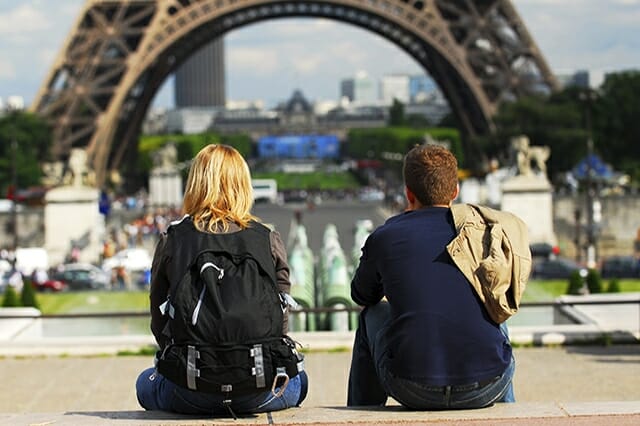
 “This is a horrific and frightening moment. But we are also surprised at the international impact, by all the public support, and we feel responsible for responding appropriately.” Muriel Fleury is the director of the Focolare’s French magazine, Nouvelle Cité and this was her answer to Radio inBlu’s question about why such events could take place in France where the process of integration is older than in any other European country. She responded: “Although in the past we were successful at integrating other peoples, it seems that in recent years we have fallen a bit behind. We want multiculturalism, in the sense of welcoming other, but without taking their cultures into account, their values that are quite different from our own. Therefore, all the places that lend themselves to dialogue, true encounter, true cultural and religious sharing need to be developed. Our failure to have an authentic encounter has led to today’s tragic situation.” Paul Wirth, a member of the Focolare engaged in interreligious dialogue, remarked: “I belong to an Islamic-Christian Friendship Group (GAIC) in France. Every year we hold a week of meetings (the most recent beginning on November 12). We feel that it is very important to make everyone aware, so that people will make a distinction between authentic Muslims and those who claim to be Muslims but project hatred.” Speaking of the reaction of Muslim friends to attacks on Friday evening, he said: “There are many Muslim associations that have put out press releases condemning the attacks as barbaric, intolerable; they want to be close to the victims and their families. Just today I saw that many Muslim associations spoke of this as a horrible moment, and we Christians believe that these tragic events do not affect the relations of fraternal love that have been established amongst us [Christians and Muslims].” In her analysis, Muriel Fleury, director of Nouvelle Cité, pointed to other causes of the unease: “For economic reasons it seems that we have completely abandoned entire quarters of the city where even the police are at risk if they go into them. And our refusal to take care of these young foreigners, to not provide them some wholesome activity to keep them busy, to not be near to them, has led some of them to join radical pseudo-religious groups that have taken them away, many of them, and now we see the results.” From where do we begin, then, to mend such a complex fabric? “The problem,” says Fleury, “is that we are in France where, unfortunately, a spiritual void has been created. This French secularism has led to a denial of the spiritual dimension of a human being. Now we must take a new path, to develop the culture of encounter, of living together. Religions will be one of these paths, religions that are able to work with one another – even with the Republic. There are already signals in this direction that try to find solutions that include every voice from every religion.”
“This is a horrific and frightening moment. But we are also surprised at the international impact, by all the public support, and we feel responsible for responding appropriately.” Muriel Fleury is the director of the Focolare’s French magazine, Nouvelle Cité and this was her answer to Radio inBlu’s question about why such events could take place in France where the process of integration is older than in any other European country. She responded: “Although in the past we were successful at integrating other peoples, it seems that in recent years we have fallen a bit behind. We want multiculturalism, in the sense of welcoming other, but without taking their cultures into account, their values that are quite different from our own. Therefore, all the places that lend themselves to dialogue, true encounter, true cultural and religious sharing need to be developed. Our failure to have an authentic encounter has led to today’s tragic situation.” Paul Wirth, a member of the Focolare engaged in interreligious dialogue, remarked: “I belong to an Islamic-Christian Friendship Group (GAIC) in France. Every year we hold a week of meetings (the most recent beginning on November 12). We feel that it is very important to make everyone aware, so that people will make a distinction between authentic Muslims and those who claim to be Muslims but project hatred.” Speaking of the reaction of Muslim friends to attacks on Friday evening, he said: “There are many Muslim associations that have put out press releases condemning the attacks as barbaric, intolerable; they want to be close to the victims and their families. Just today I saw that many Muslim associations spoke of this as a horrible moment, and we Christians believe that these tragic events do not affect the relations of fraternal love that have been established amongst us [Christians and Muslims].” In her analysis, Muriel Fleury, director of Nouvelle Cité, pointed to other causes of the unease: “For economic reasons it seems that we have completely abandoned entire quarters of the city where even the police are at risk if they go into them. And our refusal to take care of these young foreigners, to not provide them some wholesome activity to keep them busy, to not be near to them, has led some of them to join radical pseudo-religious groups that have taken them away, many of them, and now we see the results.” From where do we begin, then, to mend such a complex fabric? “The problem,” says Fleury, “is that we are in France where, unfortunately, a spiritual void has been created. This French secularism has led to a denial of the spiritual dimension of a human being. Now we must take a new path, to develop the culture of encounter, of living together. Religions will be one of these paths, religions that are able to work with one another – even with the Republic. There are already signals in this direction that try to find solutions that include every voice from every religion.”
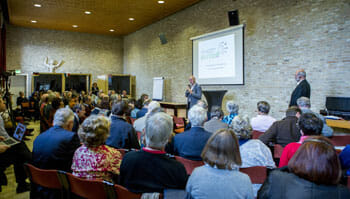

© Thomas Mandl
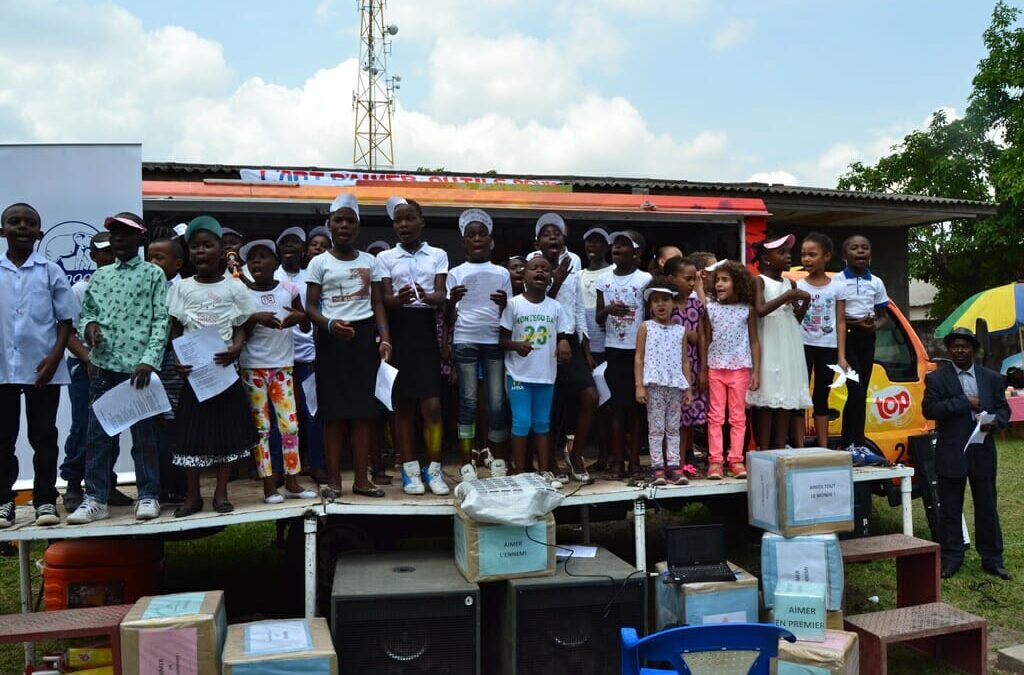
“Just try to imagine 2,000 kids rapping in unison: “Peace! Peace! War is death, peace is love.“ https://vimeo.com/148206731 And to think that all this has been happening for decades in a country torn apart by armed conflicts, the victims of which are mostly children. Now you don’t need to dream – Martine recounts – because all this really happened last 7 November in Kinshasa in the Democratic Republic of Congo.” The art of loving for peace was, in fact, the title of the day meeting which the children of the Focolare Movement in Kinshasa held with the schools of the Petite Flamme social project which had thought of organizing an event to say: no to war and yes to peace and love, and involving their friends and other 20 schools of the city in this undertaking. On Saturday morning, under a dark sky that seemed to forecast rain but which later cleared out to a burning sun, a storm of children invaded the playgrounds of the main Petite Flamme School. Songs, dances, poems and sketches then unfolded to shout to the world that Peace is love, war is death. Also the various civil authorities, diplomats and ecclesial figures who sat in the audience were overcome with enthusiasm, along with the representatives of the Italian and German Embassies, the coordinator of the evangelical schools of Kinshasa, and about 300 children, not to mention the coordinator of the Catholic schools. 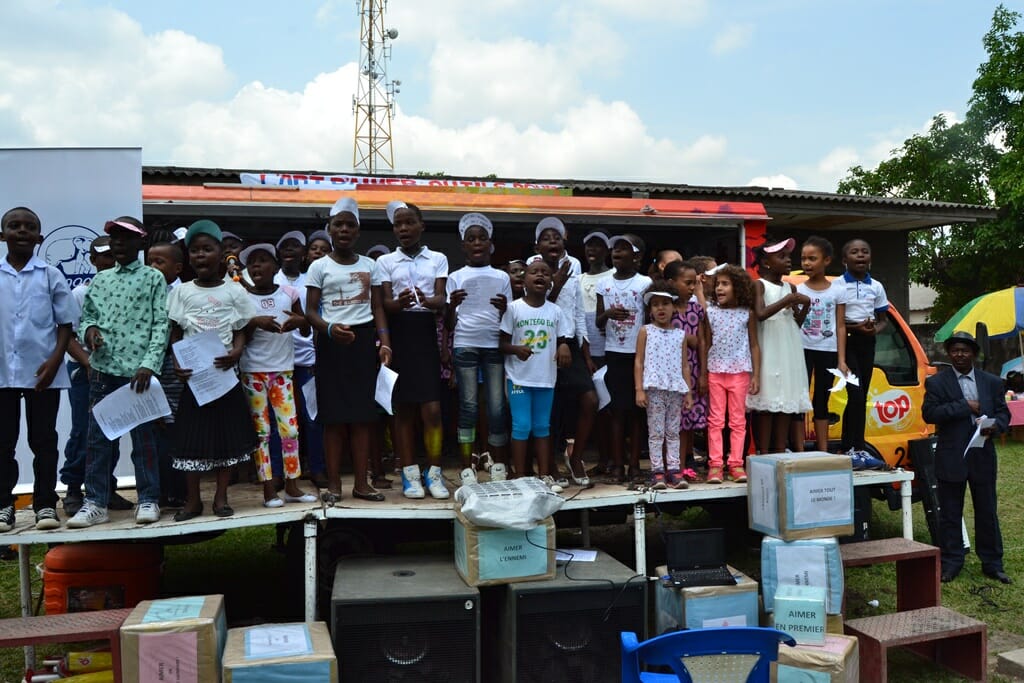 “Upon casting the Dice of love and explaining its significance – continued Martine – the children demonstrated that “peace starts with ourselves.” And the many dices that brightened the stage were them solemnly delivered in the end to every school present, as a sign of a path and commitment to peace which all had initiated together. The 22 Evangelical school directors that we involved in this initiative, expressed their enthusiasm and desire to continue working with us in these types of activities. The children were the real protagonists in the preparatory activities right from the start, with their capacity to involve everyone in the rehearsals of the songs and presentations, and the courage with which they announced and presented the meeting in a TV transmission… It was all so full of joy, enthusiasm and serious work, not to mention that even God showed his benediction through his Divine Providence! In addition there was our communion of goods and presents from parents and embassies, and even a bank sponsored the event and financed the building of the stage and sound system! The event was then broadcasted on the national TV channel, the same one that had launched the initiatives some days earlier. And we, aged 0 to 99, lived this wonderful day for peace. What remained in the depth of our hearts after seeing the joy on the faces of these children? Hope. An unwavering hope. Because the future is in good hands.”
“Upon casting the Dice of love and explaining its significance – continued Martine – the children demonstrated that “peace starts with ourselves.” And the many dices that brightened the stage were them solemnly delivered in the end to every school present, as a sign of a path and commitment to peace which all had initiated together. The 22 Evangelical school directors that we involved in this initiative, expressed their enthusiasm and desire to continue working with us in these types of activities. The children were the real protagonists in the preparatory activities right from the start, with their capacity to involve everyone in the rehearsals of the songs and presentations, and the courage with which they announced and presented the meeting in a TV transmission… It was all so full of joy, enthusiasm and serious work, not to mention that even God showed his benediction through his Divine Providence! In addition there was our communion of goods and presents from parents and embassies, and even a bank sponsored the event and financed the building of the stage and sound system! The event was then broadcasted on the national TV channel, the same one that had launched the initiatives some days earlier. And we, aged 0 to 99, lived this wonderful day for peace. What remained in the depth of our hearts after seeing the joy on the faces of these children? Hope. An unwavering hope. Because the future is in good hands.”
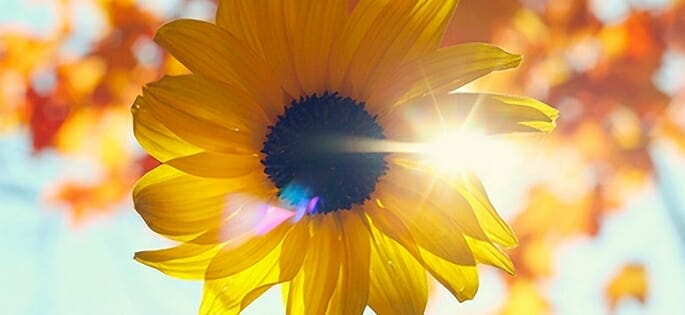
 “There is an infinite number of rays, all coming from the same sun: a single will, particular for each person. The closer the rays come to the sun, the closer they come to one another. “We too . . . the closer we come to God, by doing the will of God more and more perfectly, the closer we come to one another. “Until we are all one!” (Chiara Lubich, L’unità, Città Nuova, Roma 2015, a cura di D. Falmi e F. Gillet, p. 48-49).
“There is an infinite number of rays, all coming from the same sun: a single will, particular for each person. The closer the rays come to the sun, the closer they come to one another. “We too . . . the closer we come to God, by doing the will of God more and more perfectly, the closer we come to one another. “Until we are all one!” (Chiara Lubich, L’unità, Città Nuova, Roma 2015, a cura di D. Falmi e F. Gillet, p. 48-49).
Notifications